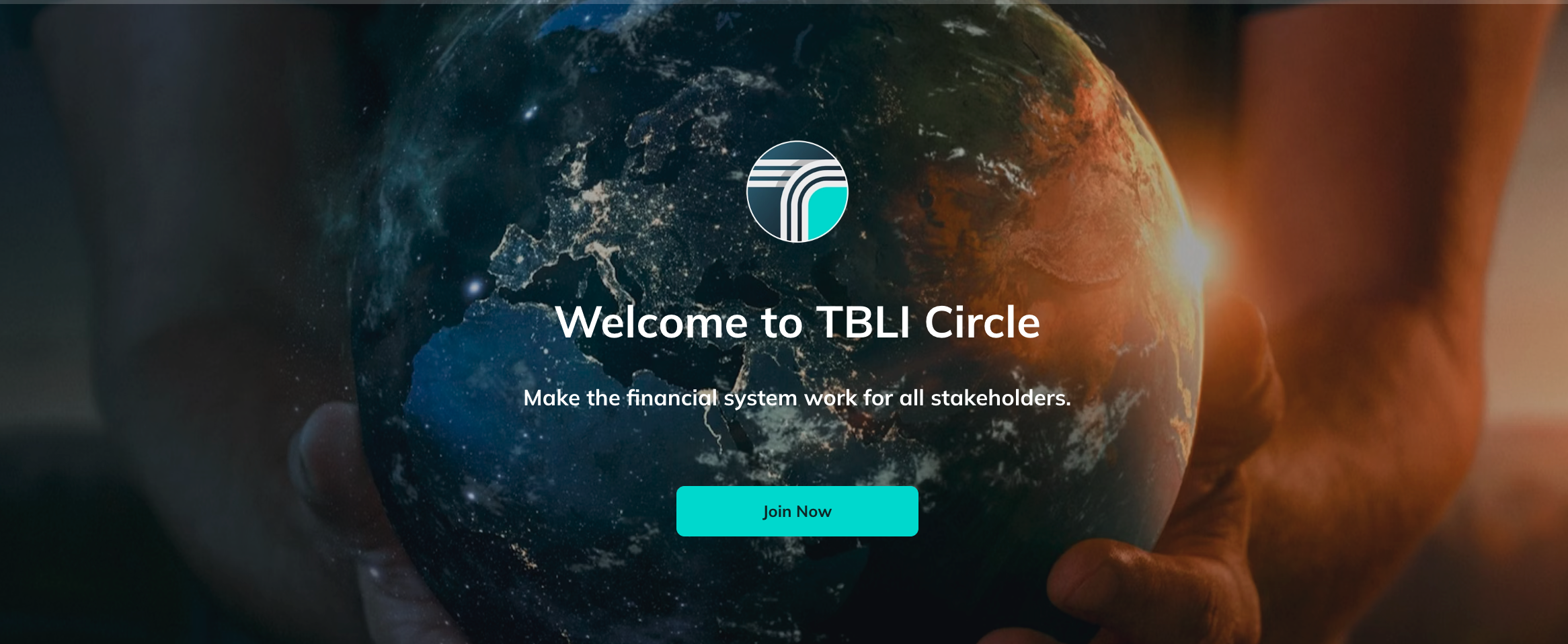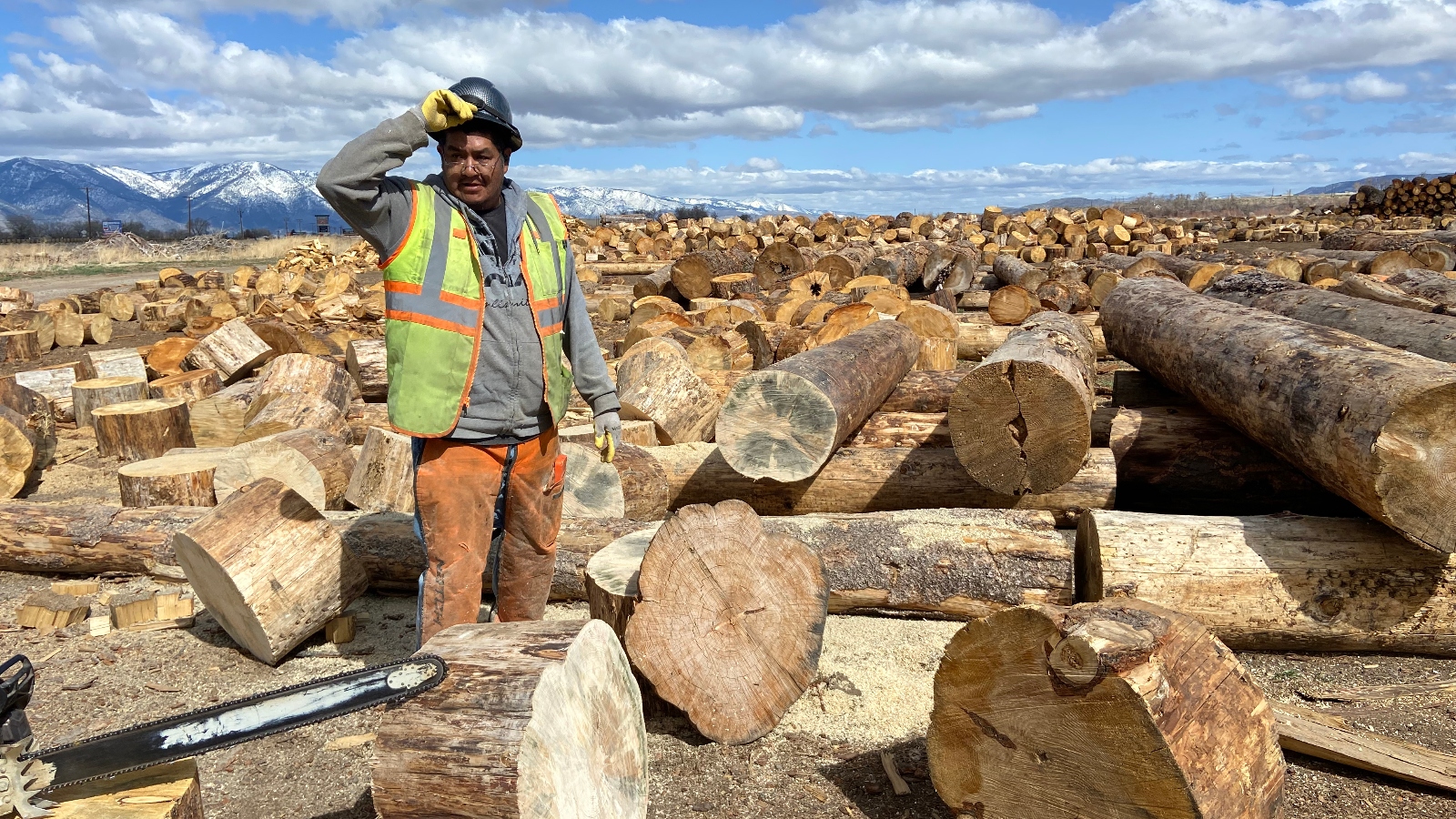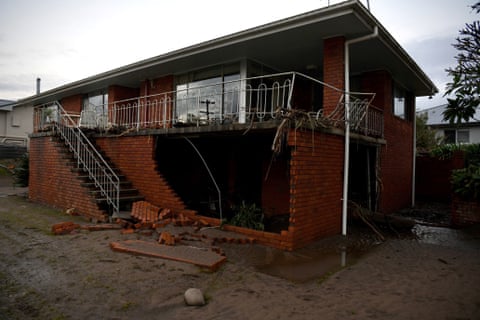
Your weekly guide to Sustainable Investment
TBLI Virtual Mixer May

You're not alone. You're just not in the right room yet.
Join the TBLI Virtual Mixer — where purpose-driven professionals connect.
📅 May 30th @ 16:00 CET
Register now
TBLI Capital Connect Client Highlight
VAI Capital

Accelerating Clean Mobility Across Africa
Meet VAI Capital, the pioneering investment manager behind Africa’s first dedicated electric mobility growth capital vehicle
the Mobility Credit Fund (MCF).
MCF bridges the financing gap for electric two- and three-wheelers, charging infrastructure, and fleet operators across Sub-Saharan Africa. By unlocking access to asset-backed finance, MCF accelerates the transition to clean, affordable, and efficient transport in urban and peri-urban communities.
Are you interested in engaging TBLI for our Capital Connect services? Book a call here
TBLI Radical Truth Podcast
Biodiversity: Climate Action and Financial Prosperity /w David Brand

David Brand founded New Forests in 2005. He is Executive Chair of New Forests’ Board of Directors and the Chair of the company’s Investment Committees. David has over 40 years’ of experience in forestry investment, forest management, science, and public policy
What you’ll learn:
- Can Biodiversity restoration offset climate risk?
- Does Forest and Biodiversity provide a financial return?
- Why is most money going into climate tech and not nature-based solutions?
US SIF Annual Forum
The US SIF Annual Forum is being held in Washington DC
June 25-27
Join the US SIF FORUM 2025 US to debate the evolution of sustainable investing – will be unpacking investment themes across asset classes, climate finance, the state of investing for impact, policy advocacy and more.
Click here for more info and to sign up
How the Washoe Tribe built a business to sustain a firewood bank that helps elders heat their homes
By: Kaleb Roedel, KUNR - Grist.org
Nationwide, tens of thousands of Indigenous households use firewood to help heat their homes. That’s why the Washoe Tribe of Nevada and California is making sure their elders have the chopped wood they need.
It’s a sun-splashed morning at the Washoe Tribe of Nevada and California’s wood yard, a patch of land about the size of a football field, tucked in a valley about 20 miles east of Lake Tahoe’s south shore.
Magpies, black-and-white birds with blue-tinted wings, land on stacks of lumber and dig for insects. Chainsaws rev and roar and wood-cutting machines crank and squeak. A mist of sawdust hangs in the air.
Foreman Kenneth Cruz, wearing a white hard hat and neon yellow jacket, is watching crewmember Jacob Vann use a chainsaw to cut up logs of thick Tamarack pine.
“That looks dense,” says Cruz, craning his neck to look at the center, or heartwood, of the log Vann is working on.
“Yeah, it is — it’s really dense,” Vann says, tilting up his hard hat to wipe his brow. “You can tell the difference between this one and that cedar. Cut right through that cedar, but when it comes to this Tamarack? It takes a lot sometimes.”
These slices of cedar and pine will eventually be hauled over to the other end of the yard, where a firewood processor is splitting logs into even cuts of firewood.
They bought this heavy-duty machine and other equipment with a $1 million grant from the U.S. Forest Service in 2023. Now, the Washoe Tribe produces about a thousand cords of firewood a year. One cord, which consists of about 800 pieces of firewood, provides heating for about one month.
Some surplus firewood ends up on shelves in local gas stations, grocery stores and area campgrounds’ supply shops. Customers who buy a bundle for their fireplace or campsite are also helping the Washoe Tribe’s energy initiative.
“The idea is that for every cord that is sold, that also pays to have a cord cut, split, and delivered to a tribal elder,” Cruz says.
It’s a program called Wood for Elders. It’s similar to a food bank. But instead of food, Cruz and his crew deliver firewood to about 110 Washoe elders — at no cost — so they can keep warm during the cold months. Although winters in the West are trending warmer, research shows that climate change can lead to more severe winter storms and cold snaps, conditions that make a well-heated home essential.
For years, the Washoe Tribe relied on volunteers to split wood from their forests and donate bundles to as many elders as possible. But, they didn’t have a consistent amount of volunteers – or wood.
Now, they have a paid crew that works year-round. That enables them to provide every elder with at least three cords of firewood each winter, which would normally cost someone about $900, Cruz says.
“Some rely solely on wood for their heat,” he notes. “That helps out those people that have a hard time through the winter.”
The Washoe Tribe says nearly three-fourths of members heat their homes with firewood and have the option of another form of fuel, like propane. But one-third heat their homes solely with firewood, said Washoe Tribal Chairman Serrell Smokey.
“They can’t afford to pay high prices of propane,” Smokey says. “And if we have long winters with snow, then the firewood is a way that everybody would heat their homes.”
Chairman Smokey says the tribe strategically removes logs from overgrown forests and areas previously scorched by wildfire and turns that timber into firewood. The tribe has a long history of forest stewardship, including the use of cultural fire, but colonial federal policies in the 1900s suppressed their sovereign ability to manage their forestlands. Over the last decade, however, federal fire officials have begun working with tribes and recognizing the value of Indigenous knowledge in environmental policy.
For its Wood for Elders program, the Washoe Tribe partners with the National Forest Foundation, the nonprofit branch of the U.S. Forest Service. The group hauls out damaged logs from forest thinning projects and donates them to the Washoe wood yard to use for their elders’ program.
“Our ability to remove some of this material and put it to good use while also coming up with solutions to address what to do with hazardous fuels, it really is a sort of a win-win in that sense,” says Sam Pankratz, the National Forest Foundation’s Rocky Mountain region manager.
Read full article
Almost 800 homes destroyed by NSW floods with tally to rise as damage assessments continue
By: Australian Associated Press
Anthony Albanese visits mid-north coast as police warn of ‘un-Australian’ looting during clean-up
The number of homes destroyed in the New South Wales floods has doubled to almost 800 as teams continue to asses damage on the state’s mid-north coast.
More than 5,000 damage assessments had been conducted with 794 homes deemed uninhabitable, a State Emergency Service spokesperson, Matt Heap, said on Tuesday. That figure was expected to rise.
At the peak of the flooding, 50,000 people were isolated. More than 10,000 remained cut off on Tuesday morning. Five people were killed.
Weather conditions were forecast to ease from Wednesday after damaging winds hit flood-affected communities.
“We do have damaging wind warnings … that includes the high elevated parts of the mid-north coast and northern Hunter,” the Bureau of Meteorology senior meteorologist Dean Narramore.
Anthony Albanese was visiting the region on Tuesday. The prime minister announced on Monday that 70 Australian defence force personnel would help with recovery efforts.
Residents have been picking up muddied possessions and surveying damage, while drones have been used to drop hay to isolated farms and to make aerial welfare checks at properties.
Nadia Zarb, an artist and gallery owner in Taree, said she could not have coped without community support.
“We’ve got the best community, we’ve got the support around us and I couldn’t ask for anything more,” she said.
Michael Kemp, the state MP for Oxley which covers four local government areas on the mid-north coast, said it was tough seeing “people’s livelihoods on the side of the kerb”.
Insurers have so far received more than 4,000 claims.
The crisis prompted federal-state natural disaster recovery arrangements, including small loans for businesses, which have been activated for 19 local government areas.
“I can assure everybody on the mid-north coast that those agencies are working around the clock to get those communities back up on their feet,” the NSW premier, Chris Minns, said.
The state’s Nationals leader, Dugald Saunders, said farmers needed more than loans to help recover from the disaster.
“What they need is a helping hand in the form of a grant to enable them to uplift their business,” Saunders said. “The feeling is a little bit starting to get angry now as people wonder where the support actually is.”
The NSW police deputy commissioner Peter Thurtell warned of looting after two men, both aged 20, were arrested for allegedly stealing property.
“The impact of this weather event has been unimaginable and to think they now have to be concerned about hanging on to whatever property they have left is a disgrace,” he said.
“Stealing from people vulnerable during hard times like these is un-Australian.”
Read full article
EU Ombudsman launches inquiry into Commission’s green rule rollback

By: Mark Segal - ESG Today
EU Ombudsman Teresa Anjinho announced that she has opened an inquiry into the process behind the European Commission’s Omnibus proposal to simplify and reduce corporate sustainability reporting and due diligence requirements, following complaints alleging that the Commission failed to meet procedural requirements in preparing the proposals.
The Commission released its Omnibus I package in late February 2025, aimed at significantly reducing the sustainability reporting and regulatory burden on companies, with proposals for major changes to a series of regulations including the Corporate Sustainability Reporting Directive (CSRD), the Corporate Sustainability Due Diligence Directive (CSDDD), as well as the Taxonomy Regulation, and the Carbon Border Adjustment Mechanism (CBAM).
Among the most changes included in the package is a proposal to have the CSRD apply to only companies with more than 1,000 employees and either revenue greater than €50 million net turnover, removing an estimated 80% of companies from the regulation’s sustainability reporting requirements, and for the CSDDD to require full human rights and environmental due diligence only at the level of direct business partners, and to require less frequent due diligence monitoring. The package also proposes limits on sustainability information requests on smaller companies.
The ombudsman’s inquiry follows a complaint made by a group of organizations, including ClientEarth, Notre Affaire A Tous, Clean Clothes Campaign, European Coalition for Corporate Justice, Global Witness, Transport & Environment, Antislavery International and Friends of the Earth Europe. The organizations argued that the Commission failed to comply with the “Better Regulation Guidelines,” which set out the principles that the European Commission follows when preparing new initiatives and proposals, by not carrying out a public consultation and conducting a proper impact assessment prior to launching the Omnibus proposals.
The organizations also complained that the Commission failed to carry out a climate consistency assessment, a requirement under the European Climate Law requiring an assessment of the consistency of EU and national policies with the EU’s 2050 climate neutrality goal.
In a letter to the EU Commission President, Anjinho said that the complaint was the third received by her office “in recent months concerning the Commission’s compliance with legal requirements, its Better Regulation Guidelines and further rules in preparing legislative proposals,” adding:
“It is clear that the issues raised in these three complaints raise a number of important issues for the Ombudsman.”
The ombudsman provided a series of questions for the Commission, including asking the Commission to “elaborate on the reasons for its decision not to carry out a public consultation for this proposal,” and for more detail on “meetings with companies and other stakeholders” that the Commission held in February 2025. The ombudsman also asked the Commission to “explain the “urgency”” behind its decision not to conduct an impact assessment, and if it carried out a climate consistency assessment for the proposal.
In a statement released following the ombudsman’s announcement, the eight organizations said:
“This swift and decisive action by the EU Ombudsman underlines the importance of the issues raised in our complaint. The Commission’s rushed rollbacks of three key components of the Green Deal – including laws aimed at tackling the environmental and human costs of global value chains – has completely disregarded the rights of both people and the planet.”
Read full article
US climate pullback threatens planned debt-for-nature deals

By Marc Jones and Virginia Furness - Reuters
LONDON, May 22 (Reuters) - Billions of dollars of debt deals aimed at protecting vital ecosystems from Africa to Latin America are at risk of unravelling or may need reworking amid concerns that crucial U.S. backing is about to dry up under President Donald Trump.
The 'debt-for-nature' swaps, which reduce a country's debt in return for conservation commitments, have gained traction in recent years with deals involving the Galapagos, opens new tab Islands, coral reefs and the Amazon rainforest among the most prominent.
The U.S. International Development Finance Corporation (DFC) has been a key player, providing political risk insurance for over half of the deals done over the last five years, accounting for nearly 90% of $6 billion of swapped debt.
A source with direct knowledge of the plans said the DFC had about five swaps in the pipeline which are now in question with CEO-in-waiting Ben Black and U.S. government efficiency chief Elon Musk both criticising its climate work.
The source did not specify how much debt was covered by the swaps but pointed out that the last few DFC-backed deals involved over $1 billion each.
Spokespeople for the White House and the DFC did not respond to requests for comment on future DFC involvement in such deals.
A DFC official who spoke on condition of anonymity confirmed to Reuters it stepped down earlier this year as co-chair of a global task force set up in 2023 to expand the use of debt swaps.
U.S. Treasury Secretary Scott Bessent has also hit out at multilateral lenders for climate change work amid a broader U.S. retreat that has seen it withdraw from the Paris Agreement to curb global warming.
Angola and Zambia and at least one Latin American country are among those whose 'debt-for-nature' swap plans risk needing to be reworked or even abandoned due to DFC uncertainty, four sources that have been directly involved in the projects said.
Angolan Finance Minister Vera Daves de Sousa said her country, which is one of the most indebted in Africa and whose rivers feed the Okavango basin, opens new tab vital for endangered elephants and lions, has been talking to the DFC about two potential swaps.
One is a debt-for-nature deal, the other a broader 'debt-for-development' swap tied to education and young people.
"We feel openness from them (DFC), but especially on the debt-for-development swap," de Sousa recently told Reuters.
"We respect their vision," she added. "For us there is no difference – we have opportunities on the development side, and we have opportunities on the nature side."
In Zambia, which late last year was looking closely at a swap linked to its vast national parks that are home to over 40% of Africa's elephants, things have changed too.
"We are not completely shutting (the swap) down but we are not actively at it right now," its Finance Minister Situmbeko Musokotwane told Reuters, declining to specify the reason for the shift.
NEW REALITY
Generating money for conservation by exchanging costly government bonds for cheaper ones is seen as an obvious choice for smaller nations grappling with heavy debt loads and climate change pressures.
The UK-based, non-profit International Institute for Environment and Development estimates that the world's 49 poorest countries seen most at risk of debt crises could swap a quarter of the over $430 billion they now owe.
Given the signals coming from Washington, those that do should drop hopes of DFC support and look at alternatives, said White Advisory managing director Sebastian Espinosa, who has advised Barbados, Belize and Seychelles on such swaps.
Those could include credit guarantees from major multilateral development banks, potentially alongside private sector insurers and guarantors, as pioneered by the Bahamas last year.
Read full article
https://mail.tbligroup.com/emailapp/index.php/lists/vr9326mjcm0e8/unsubscribe



